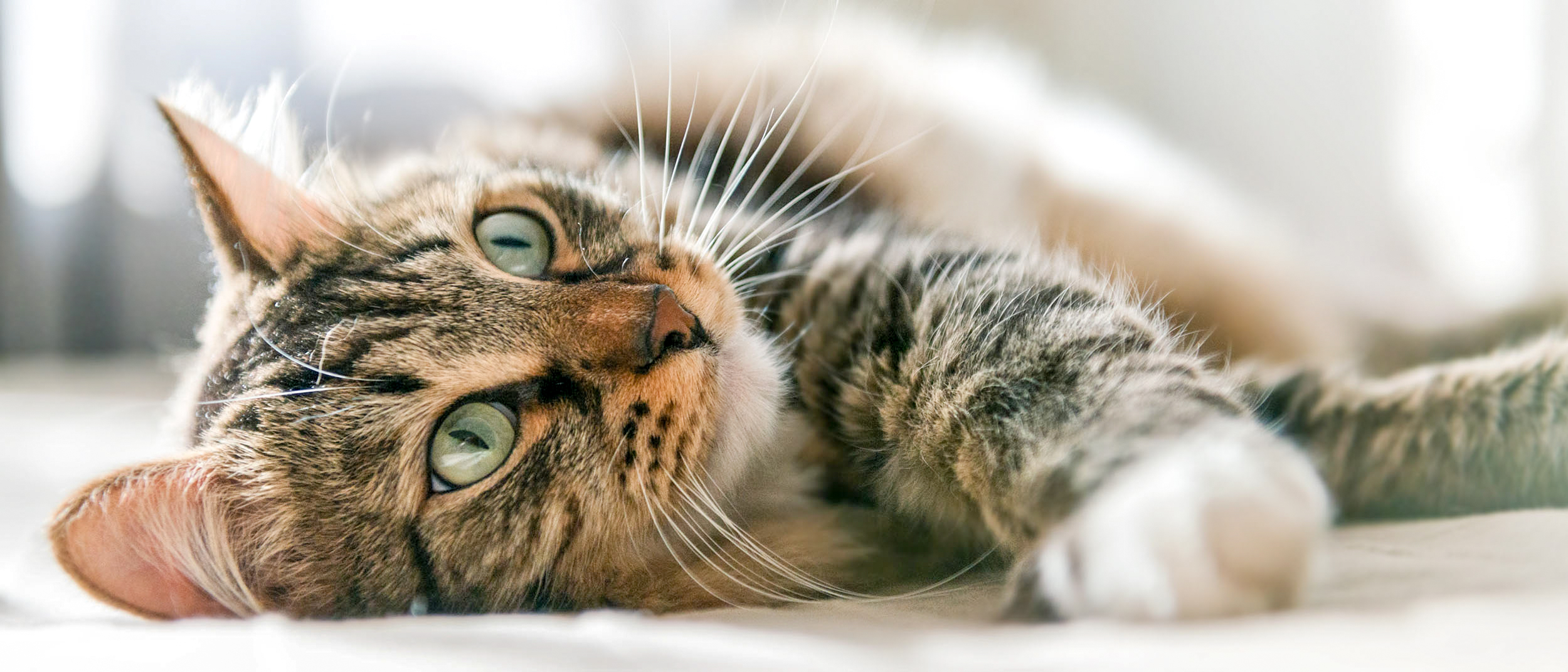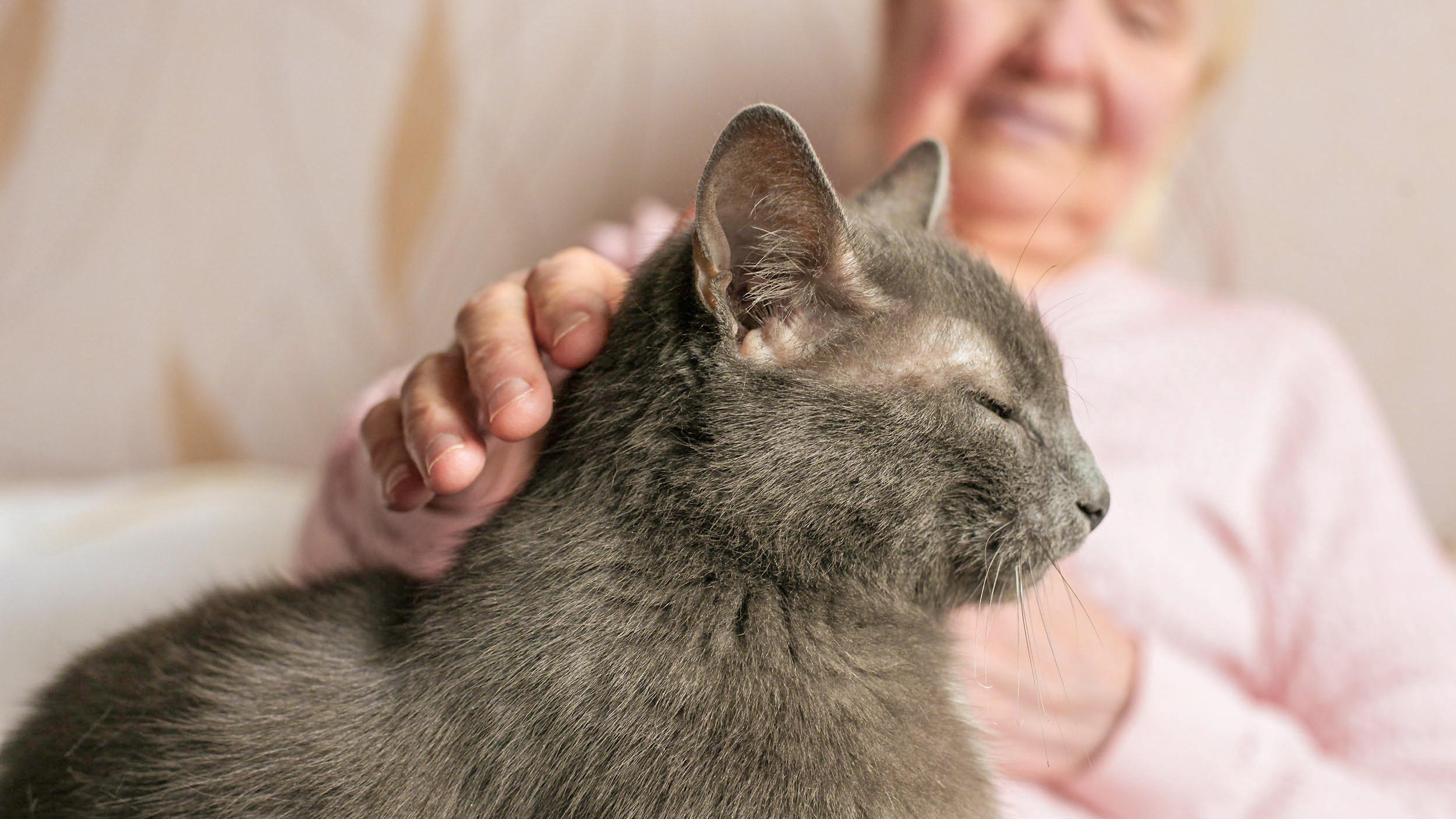End of life care for your cat
Article

On average, cats live for 15 years, but it’s not uncommon for them to live to up to 20 years old. Near the end of their life, there are simple changes you can undertake to provide them with the best care possible, support their health and make them comfortable.
What happens when a cat gets older
From the age of 11, you’ll begin to notice the external indicators of ageing in your cat. Their smell, taste and hearing become less acute, and their mobility begins to suffer due to joints which are worn down or painful. Their skin and coat can become duller as their sebaceous glands – responsible for generating nourishing oils for this skin - are less productive, and conditions like arthritis make it harder for them to groom themselves properly.
Your cat may begin to suffer from dental problems like worn teeth or gum disease, which can affect their appetite and make it painful for them to eat. Their digestive and other bodily functions are slowing, which means it can be more difficult for them to absorb all the nutrients they need from their food and they may lose weight.
Cats may also suffer from cognitive impairment as they get older, which it’s estimated affects more than 80% of cats aged between 16 and 20. This condition manifests itself as sleeplessness, disorientation, increased anxiety and forgetting their routine – for example, where their food or litter tray is.
How to make your ageing cat comfortable
Each aspect of your senior cat’s life can be made more comfortable through simple, small changes, particularly as it reaches the end of its life.
Your senior cat’s environment
Make your cat’s favourite places easy to reach with ramps or small steps, and surround it with its favourite toys or possession. Food and water should be within easy reach, and you may wish to swap its litter tray for one with shallower sides that’s easier to get in and out of.

Sleep, exercise and your older cat
To encourage your ageing cat to get into a good sleep routine, you can play with it during the day so tire it out at night. Make its bedding comfortable using cushions to encourage it to sleep there and prevent pressure sores forming in less mobile cats. Pheromone sprays are useful as these can help relax your cat and help reduce anxiety or sleeplessness.
Your ageing cat and their diet
Regularly changing a cat's diet to provide varied food can actually result in unnecessary stress for an ageing cat. So long as they are being fed an appropriate diet adapted to their changing needs, there's no reason to alter this unless otherwise recommended by your vet.
You can increase the palatability of its food by heating it to release the aroma, and choose one with an easy-to-digest texture. Older cats tend to drink less, which can lead to urinary problems, so make sure fresh water is easily available; water fountains can be a useful way to encourage your cat to drink.
Considering the wellbeing of your older cat
It’s important to visit your vet regularly, at least twice a year, to check on the health of your older cat. If your cat is exhibiting symptoms of breathlessness, reclusiveness, a reluctance to move or severe pickiness about its food, it may be in significant pain and you should immediately consult a vet.
Your vet will be able to advise you on the extent of your pet’s distress and give you recommendations on whether it’s best to provide hospice care or consider other options.
Your senior cat’s wellbeing and quality of life towards the end can be improved through adjusting your home, their diet, and by working with your vet to provide them with the medical support they need. If you’re unsure of the best ways to help your older cat, make an appointment with your vet who will be able to advise you.
Related Articles
Like & share this page with your friends & family